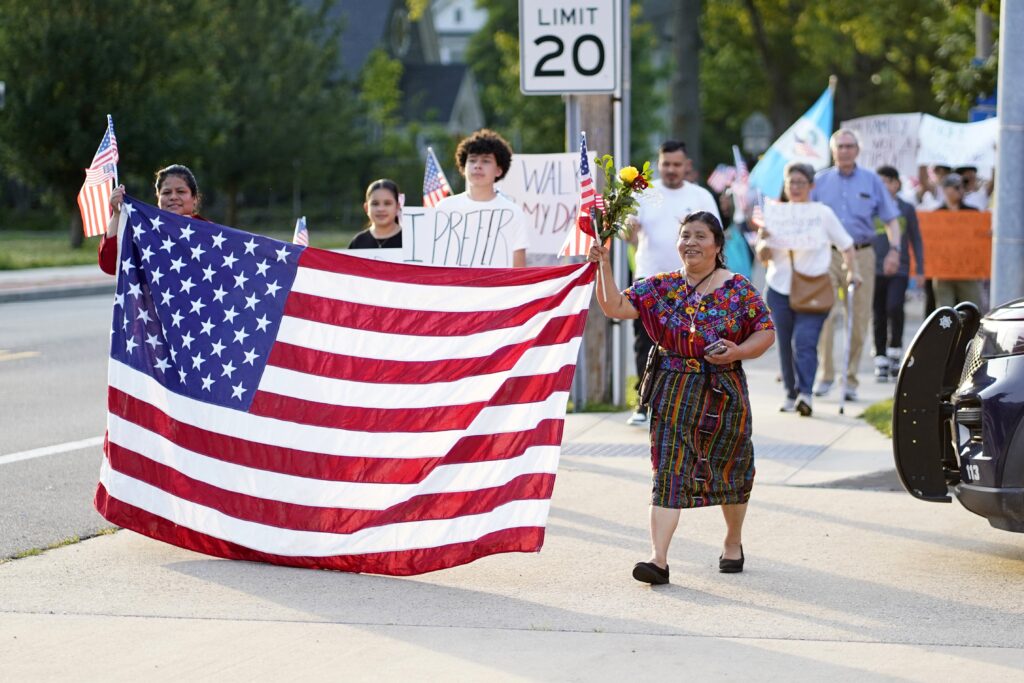
Imagine being a Catholic student on Good Friday, pressured to eat meat by people who don’t share your faith. This is a small but meaningful example of religious freedom being threatened. In moments like these, we face a tough choice between avoiding conflict and staying true to our beliefs. Unfortunately, situations like this are still common for many religious communities across the country. Religious freedom is the right to practice and express one’s beliefs without interference or persecution. It allows people to worship freely and live according to their values as long as it’s done peacefully. Whether it’s bans on Muslim headscarves in schools or legal battles over conscience protections in healthcare, not everyone is living as freely as they should be. As Catholics, we are called to defend the dignity of every person, no matter their faith. Christians have a responsibility to respond to this issue, and the Church must help lead the way.
One of the most powerful ways to respond is by living out the virtue of solidarity. Solidarity means standing together as a community to protect the rights and dignity of all people, regardless of religion or culture. It’s not enough to defend only our own values—we are called to stand up for everyone. In the Gospel, Jesus commands us to “love your neighbor as yourself” (Matt. 22:39). This love becomes real through action. We can get involved by joining interfaith groups, writing letters to lawmakers, and using social media to amplify voices that are often ignored. A great example of this was when a Christian clergy stood beside a group of Muslim leaders to protest a school district in Washington that attempted to ban the hijab. Rather than staying silent, the clergy supported their Muslim brothers and sisters. That act of unity didn’t just protect one group; it strengthened everyone’s freedom.
Even though Christians are called to reflect God’s love and goodness, there have been times when we’ve fallen short. Some people have had negative experiences with Christians who were intolerant or dismissive of their beliefs. At certain moments, actions taken in the name of Christianity have caused harm. That’s not what Jesus taught us. We are not meant to use God’s words to justify division or disrespect. Instead, we’re meant to live as Jesus did — with compassion, mercy, and love for all. The Church should guide us on that path. Rather than creating more separation between communities, the Church should bring people together. All faiths need to unite and look beyond politics and differences. Instead of getting caught up in endless arguments, we should focus on protecting the basic right of every person to worship and live according to their beliefs. Doing this helps move us away from the negative stereotypes that sometimes surround Christianity, and instead lets us be a source of hope and unity.
Taking that first step can feel uncomfortable. It’s easier to speak up when we’re personally affected, but we’re called to act even when we’re not. Jesus didn’t only help those who believed in him. He ate with tax collectors, spoke with Samaritans, and showed mercy to outcasts. Many people disliked him, yet he continued to love and defend them. That’s what we are meant to do too. Our actions shouldn’t only benefit ourselves — they should serve the greater good. When injustice happens, whether it’s a synagogue being vandalized, a Muslim coworker being mocked, or a classmate being judged for their beliefs, we can’t stay silent. Even a small act like sharing a message of support online can make a difference. Whether it’s through educating others, peacefully standing up for what’s right, or simply listening with empathy, there is always a way to show up for others.
As the world grows more divided, the Church’s role becomes even more important. It must be a bridge — not a barrier — between people. Pope Francis often spoke about this, describing the Church as “a field hospital,” a place for healing, not judgment. That’s why the Church should always protect freedom of conscience and advocate for the rights of believers everywhere. The goal is unity built on faith, justice, and love. While religion and politics do sometimes overlap, the Church should not take sides politically. Staying impartial allows the Church to remain a moral compass, encouraging people to defend not just their own freedoms, but those of others too. Sister Norma Pimentel is a great example of someone who did just that. A Catholic nun and the director of Catholic Charities of the Rio Grande Valley, she worked with migrant families at the U.S.-Mexico border. She offered aid and support while standing up for their dignity. Even though her work was considered politically controversial, she chose to act out of faith and compassion. She didn’t let politics get in the way of what was right. Her story reminds us that protecting religious freedom sometimes means challenging what’s comfortable to serve what’s just.
Religious freedom isn’t just a law or a concept — it’s a sacred truth based on the dignity and worth of every person. As Christians, we are not only asked to live our faith, but also to protect others’ right to do the same. In a time of deep division and misunderstanding, we need to live out God’s teachings with humility, courage, and love. Let this generation — and the ones to come — rise above fear, stereotypes, and division. Let us walk together in the light of Christ, building a world where freedom is defended through justice and peace for all.
– – –
Lucia Corbea is the winner of the U.S. Conference of Catholic Bishops’ 2025 Religious Liberty Essay Contest.


